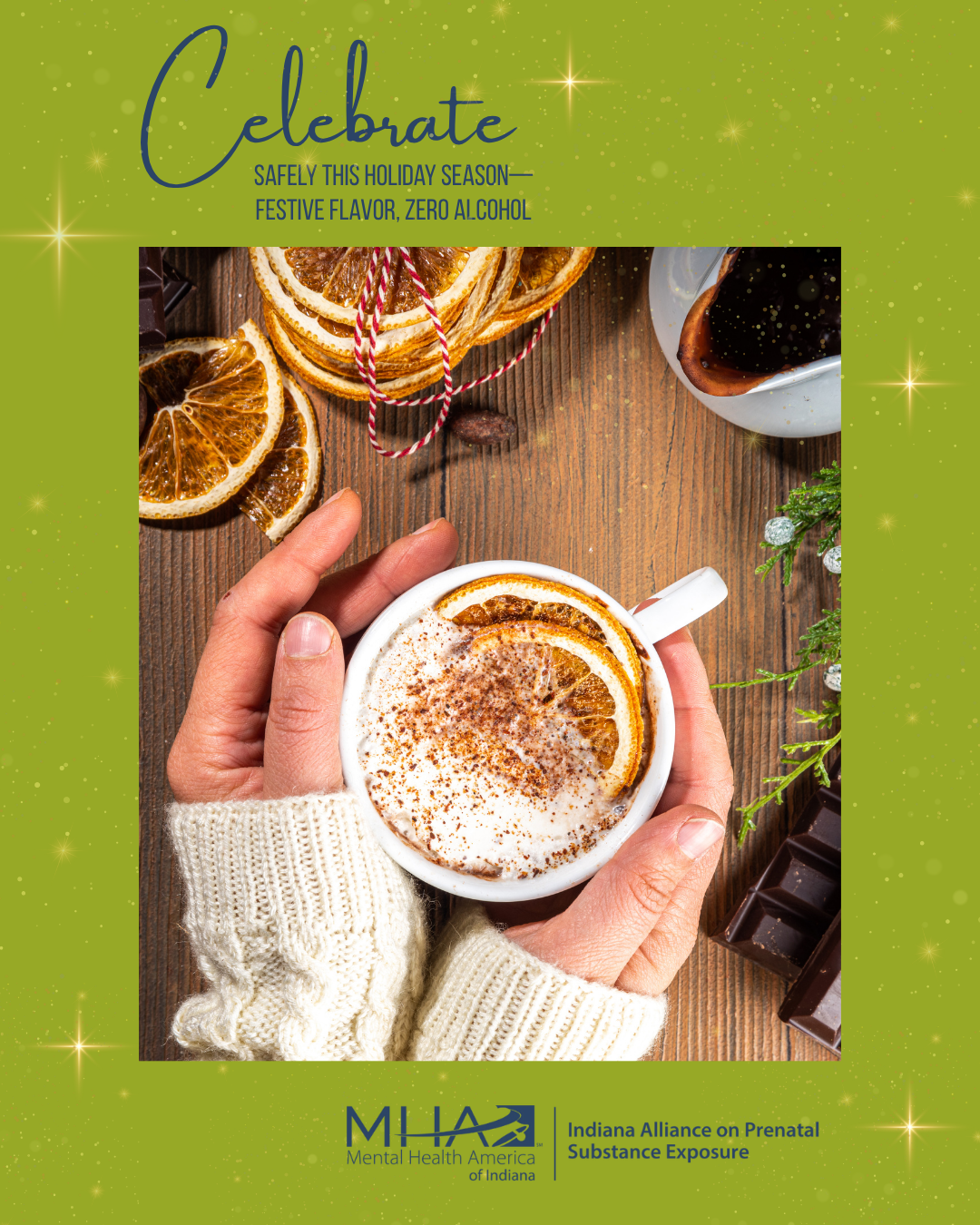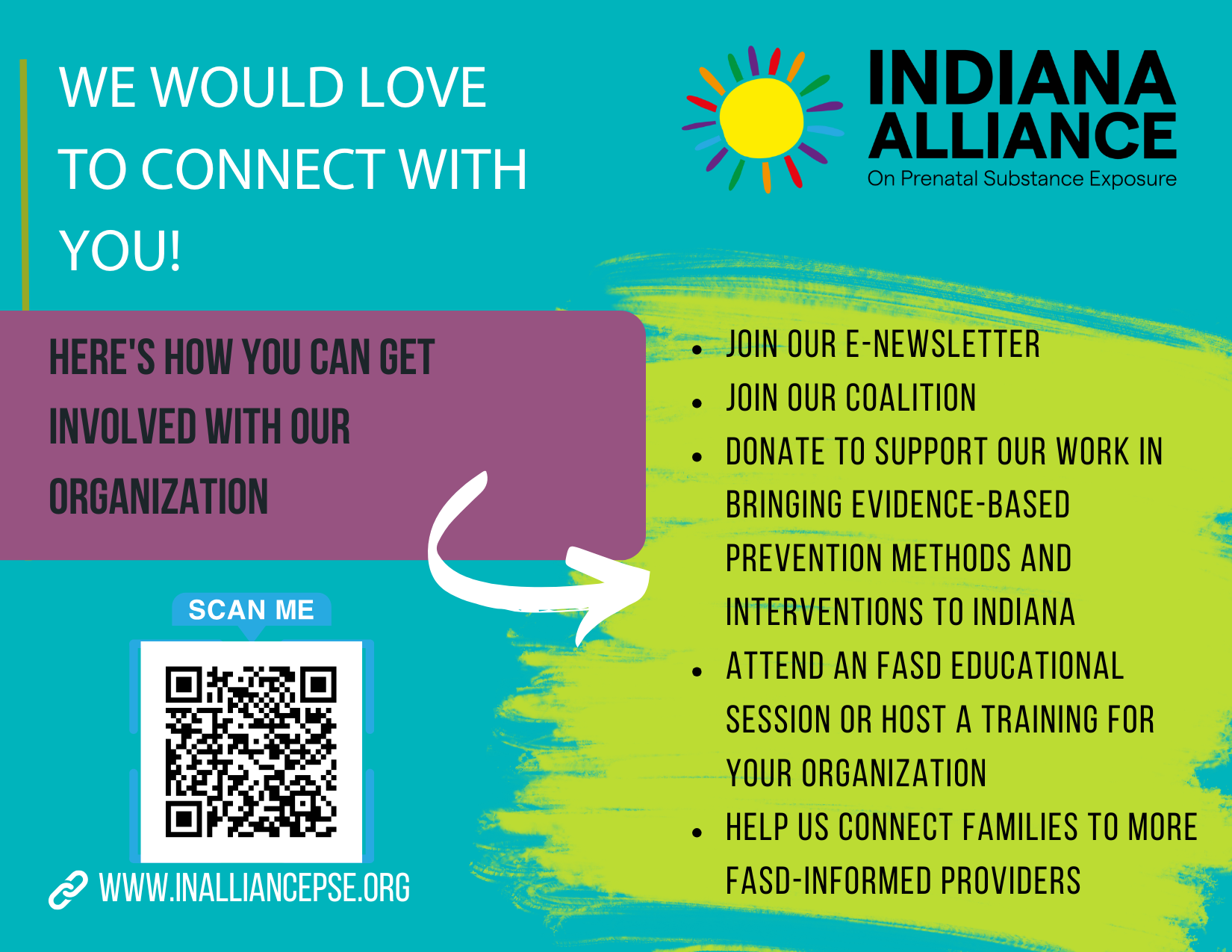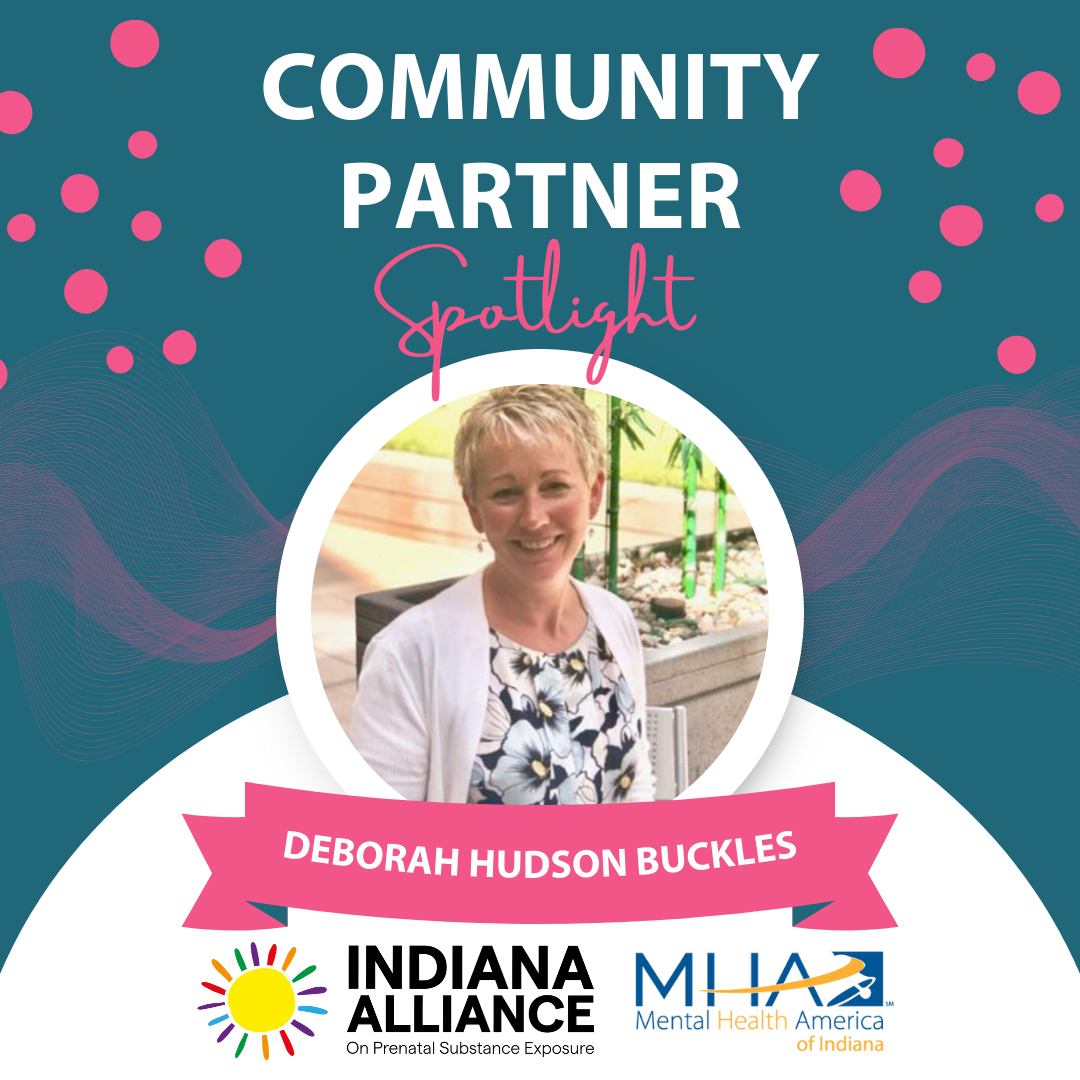
Indiana Alliance is excited to share we have added Rebecca’s Spotlight to our website. We want to create a space where individuals living with an FASD can share their stories. This space is called Rebecca’s Spotlight to honor self-advocate Rebecca Tillou and her work to give other self-advocates voice. If you’re inspired to share YOUR story, let us know!
Keep fighting. Keep hoping. Keep dancing.
These are words of encouragement from Helen Simpson, Age 32, from Portland OR. This is her story!
At birth I tested positive for heroin and cocaine, resulting from the substance abuse from my birth mother. She admitted to alcohol use. My parents were aware from the beginning of fostering me that I was prenatally exposed. They had experience in raising children with exposure. They provided me immediate and constant medical care, therapy, and treatments due to the physical, developmental, and emotional issues I faced. Unable to speak until I was 4 years old, speech therapy was a prominent support for me.
Need information for fostering children and youth with Fetal Alcohol Spectrum Disorder? Check out this resource!
I was officially diagnosed with FASD at the age of 11. As puberty made its appearance known, more struggles began but were far more devastating. This also began the list of multiple diagnoses I would receive. I was diagnosed with Bipolar, ADHD, Obsessive Compulsive Disorder, Depression, Reactive Attachment Disorder, Insomnia, Hyperactivity, and so forth. It was only after completing numerous assessments and seeing several specialists where I was finally given the diagnosis of Fetal Alcohol Effects and Alcohol-Related Neurodevelopmental Disorder. The only diagnoses which remain to this day are FASD, ARND, Sensory Processing Disorder, and Central Nerve Damage. Overlapping and/or misdiagnosing are very common with FASD.
Need guidelines for referral and diagnosis? Check out this resource!
The three greatest struggles I faced during my school years were centered around difficulties learning, social skills, and appropriate behavior management. In the start of high school, we implemented a 504 plan. The accommodations were STAR, WISSP, extended testing times, least distracting seating placements and learning environments. My 504 goals were developing better social skills, social interactions, peer relationships, social cues, communication skills, and behaviors toward others. I was bullied the entirety of my school years. I was labeled as weird, loner, and a freak. Shaking from my tremors led to kids calling me ‘crack-baby.’ I struggled making friends, setting boundaries, acting impulsively without thinking, listening to social cues, keeping friends, and giving in to peer pressure and unhealthy situations. I was a walking target for others to bully and tease.
Need tips for students with an FASD? Check out this resource!
My top 3 strengths with having FASD are storytelling, being creative, being persistent and determined. Storytelling and writing are my greatest talent and gift. I have been able to make a career out of it, but most importantly I have been able to help others and make an impact with it. Creativity spills from me. Through designing, graphics, interior decorating, websites, media, imagery, new projects, crafts, marketing, communications, and dreams; creation of any sort is a passion which I have achieved great things through. Determination and persistence are an enormous strength of mine, and many with FASD. The success I have had in my life is because of my relentless persistence. In my advocacy, community outreach and support, employment, pursuit of college degree, motherhood, I have faced it head on with determination. Through every setback, obstacle, addiction, struggle with mental health, constraint, limitation, barrier, failing, flaw, and loss, I have remained persistent in overcoming it all.
Want to hear other stories of other adults living with FASD? Check out this resource!
If you’re an individual or family, guardian, educator working with someone affected by FASD, Helen wants YOU to hear this:
I know you’re exhausted, frustrated, discouraged, and fighting your best fight. I also know that everything you’re doing right now is making a difference, even if you can’t see it. I promise one day you will see what I see. You will see your courage, heart, hope, bravery, successes, dreams, every bit of work you put in. The key to it all is the support systems being in place, surrounding yourself with the same fighters in the FASD community, allowing yourself grace, respite, and honesty. Most importantly though, keep fighting. Keep hoping. Keep dancing. Keep living in all those tiny moments along the way where happiness and light sneak in to fill your soul. It’s not the destination. It’s the journey. You are doing an amazing job. I see you, hear you, believe in you, and cheer for you!
More about Rebecca Tilou
Rebecca hopes to spread her knowledge of what it is like to be diagnosed as an adult with FASD – which is often called an “invisible disability.” Read more about her own journey of self discovery here and watch a video she created for others here. Rebeccas has also written a book called “Tenacity” about her struggles to understand not just her biological roots but herself.







